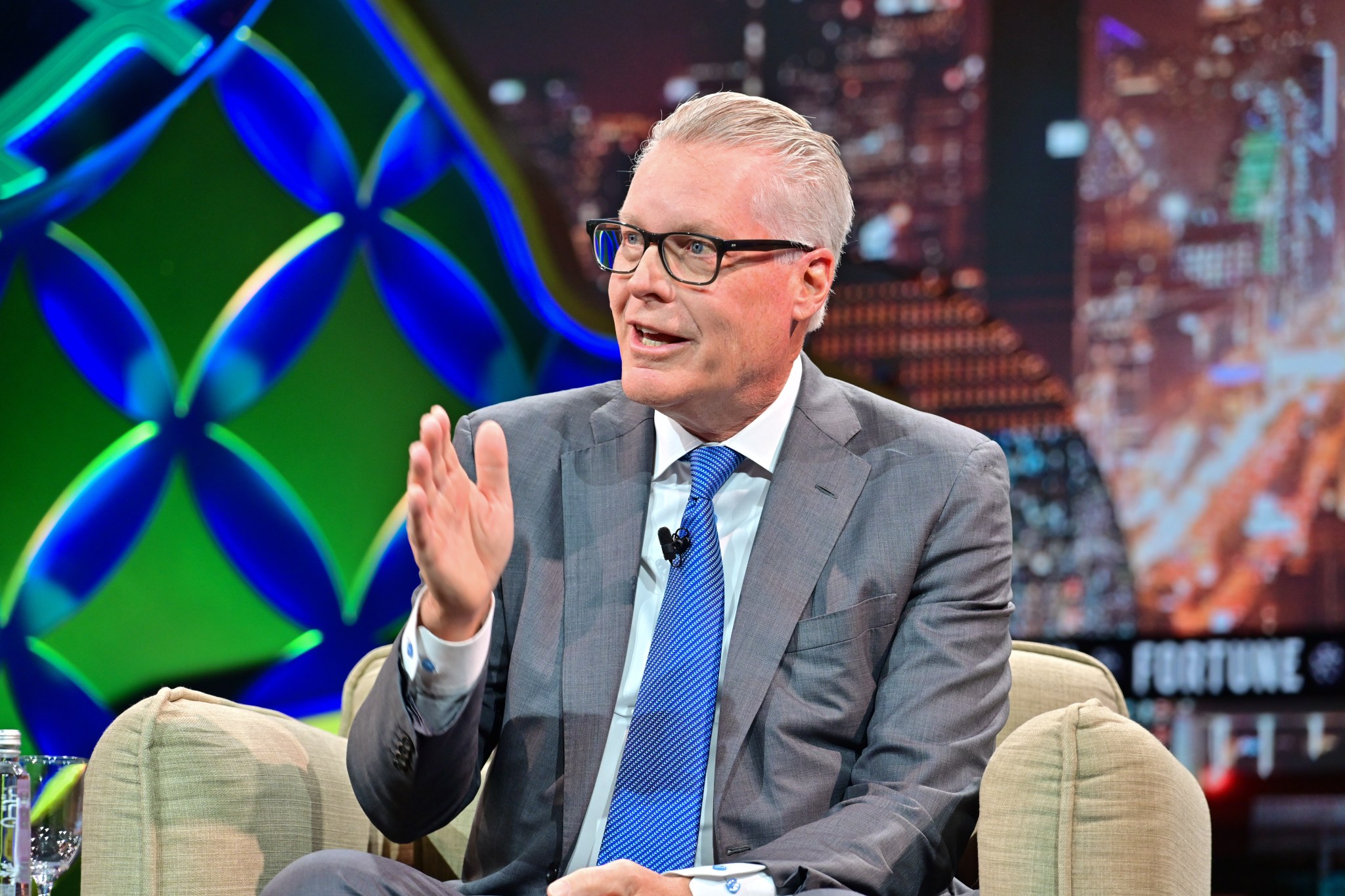It was fascinating to hear Delta Air Lines CEO Ed Bastian and Riyadh Air CEO Tony Douglas talk to Fortune’s Alyson Shontell about building loyalty in the current climate during the recent Fortune Global Forum. Both carriers have a unique opportunity to recruit new loyalty members — Delta by becoming the first U.S. carrier with direct flights to Saudi Arabia, linking Atlanta and Riyadh, and newcomer Riyadh Air by garnering an impressive 400,000 signups for its loyalty program within its first 10 days.
**Prioritize Your Own People**
“In our business, everyone focuses on the airline, the aircraft, the technology, the airports, the amazing destinations we get, but it’s the staff that bring it to life,” said Bastian. He emphasized founder C.E. Woolman’s mission to take good care of your people so they can take care of customers.
“I obsess on my 100,000 own so they can then go do the amazing work that our customers deserve. If your people don’t feel that love and respect and care, they’re never going to be able to give you the service that you expect.”
Bastian echoed a similar sentiment earlier this year during a webinar marking Delta’s rising rank on Fortune’s list of Best Companies to Work For.
**Digitize**
As a new carrier, Riyadh Air has the advantage of being what Douglas calls “a true digital native.” This allows the airline to build a technology stack that offers an altogether different experience for guests. For example, customers can book different travel days for different people in their family and combine them into one order — similar to how you can shop on Amazon.
“Because we didn’t have a legacy, this was a golden opportunity,” added Douglas.
**Personalize**
Bastian often uses the word ‘concierge,’ while Douglas is utilizing agentic AI to create a differentiated, personalized experience for each customer.
Part of personalization comes from creating a broad network: Delta flies to more than 300 destinations—which increases to over 1,000 when including code-share partners—and Riyadh Air has a mandate to reach more than 100 cities globally within the next five years.
Another aspect is offering customers more flexibility in how they accrue, swap, and deploy loyalty points. For Douglas, this means reinventing airline loyalty programs into a “lifestyle proposition.”
**Deliver**
Ultimately, there is no substitute for reliable and excellent service. “We would never win on a low-cost strategy,” said Bastian, who chose to distinguish Delta as the most reliable airline.
It worked. “Once you develop the reliability standard, your staff starts to believe that this is different,” he explained. Customers, in turn, become more willing to pay for this premium service.
*Watch the full interview here.*
—
### More News
**U.S.-China Trade Truce**
U.S. President Donald Trump’s meeting with China’s Xi Jinping resulted in the U.S. lowering fentanyl-related tariffs on China, while China suspended some export curbs. China will resume U.S. soybean purchases and lift controls on rare-earth exports. Trump said he expects the one-year deal to “be very routinely extended.”
**Fed Cuts Rates**
The Federal Reserve cut rates by a quarter point on Wednesday, citing “economic activity expanding at a moderate pace,” despite lacking key employment data due to the government shutdown. Chair Jerome Powell cautioned investors not to count on another rate cut in December, causing markets to dip.
**Nvidia Hits $5 Trillion**
Nvidia became the first company to hit a $5 trillion market cap Wednesday morning. This milestone followed CEO Jensen Huang’s remarks about having “visibility into half a trillion dollars [in revenue],” and anticipation ahead of discussions with President Trump and Xi Jinping (though Nvidia’s Blackwell chips ultimately were not discussed).
**Alphabet Revenue Soars**
Alphabet’s revenue surged 16% in the third quarter, reaching a record $102.3 billion. Growth was driven by advertising and cloud computing units, which help fund its expansive AI investment. The company expects capital expenditures between $91 billion and $93 billion this year, up from $52.5 billion last year.
**U.S. to Resume Nuclear Weapons Testing**
Shortly before meeting Xi, President Trump instructed the Defense Department to resume nuclear weapons testing to keep pace with countries like China and Russia. The U.S., holding the world’s largest nuclear arsenal, has not conducted such tests since 1992.
**Mastercard Eyes Stablecoin Startup**
Mastercard is reportedly in advanced talks to acquire cryptocurrency and stablecoin infrastructure startup Zerohash for between $1.5 billion and $2 billion, according to sources familiar with the matter. If finalized, the deal would mark Mastercard’s largest move into the stablecoin sector.
—
### The Markets
– S&P 500 futures are down 0.01% this morning, following a flat last session.
– STOXX Europe 600 is down 0.11% in early trading.
– The U.K.’s FTSE 100 is down 0.41%.
– Japan’s Nikkei 225 is up 0.04%.
– China’s CSI 300 is down 0.8%.
– South Korea’s KOSPI is up 0.14%.
– India’s NIFTY 50 is down 0.68%.
– Bitcoin is down at $111K.
—
### Around the Watercooler
– America’s flatlining income growth hits Gen Z the hardest, throttling their shot at homeownership, warns a JPMorgan report by Sasha Rogelberg.
– CEO of $62 billion software giant Workday warns: “There’s nothing more dangerous than yesterday’s success” by Emma Burleigh.
– MacKenzie Scott’s latest $60 million donation highlights philanthropists filling the void from Trump’s cuts to FEMA, reports Sydney Lake.
– UBS warns governments are likely to pillage the $80 trillion ‘Great Wealth Transfer’ to fund national debt, according to Eleanor Pringle.
—
*CEO Daily is compiled and edited by Joey Abrams and Claire Zillman.*
https://fortune.com/2025/10/30/delta-ceo-ed-bastian-loyalty-program-staff-customers/

Be First to Comment